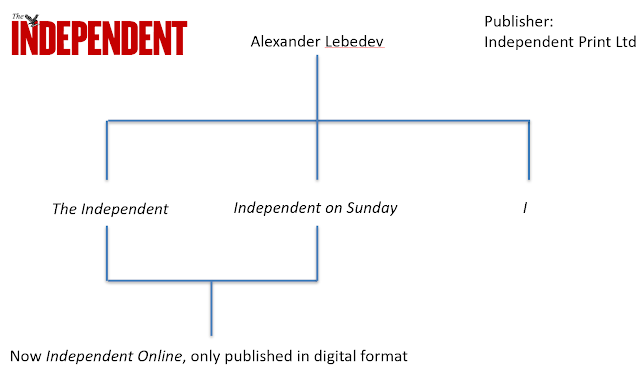Ownership:


Marketing and distribution:
- The last printed edition of The Independent was published on Saturday 26 March 2016, leaving only its digital editions.
- The current guise of the newspaper is the Indy100
- The I was also launched as a competitor for free papers. Originally a sister newspaper to The Independent, it cost only 20p when first published. However, it is now owned by JPIMedia.
Role
of IPSO:
- Independent Press Standards Organisation
- Introduced 2014, replacing the Press Complaints Commission (PCC).
- They regulate the content of all press (newspaper) and magazine copy.
Stuart Hall:
Preferred/Negotiated/Oppositional:
- Preferred Reading – This is when audiences respond to the product the way media producers want/expect them to.
- Negotiated Reading – This is when a member of the audience partly agrees with part of the product .e.g Film, documentary, TV programme.
- Oppositional Reading – This is when the audience are in complete disagreement with the product’s message or setting.

Comments
Post a Comment